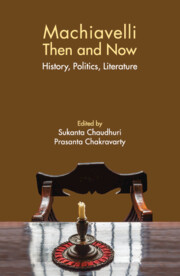9 - ‘Letters as Oracles’: Machiavelli’s Foresight in His Letters
Published online by Cambridge University Press: 21 January 2022
Summary
Machiavelli's letters are a fabulous field for historians and literary buffs alike. The freedom of their style, full of irony and gravitas at the same time, lends them to a whole range of close readings. For instance, John Najemy's book Between Friends focuses on the letters exchanged from 1513 to 1515 between Machiavelli and his friend Francesco Vettori, including the famous letter of 10 December 1513. Najemy's book is an exercise in intertextual reading, more convincing at certain times than others but certainly calling for close attention overall. My main objection is that he sides pre-emptively with Machiavelli, presuming all through his intellectual and moral superiority to Vettori. Yet Vettori was no fool, and in his own day he was certainly more Machiavellian than Machiavelli. He managed to survive four out of five regime changes in Florence, until his death in 1540. For Niccolò, one republican downfall in 1512 was enough to compromise much of his active political career, and even after he barely recovered his reputation, it did not help him much during the second republican coup in May 1527, shortly followed by his death in June. Some people, in fact, attributed his bodily demise to his bitterness at not having been hired back by the new government. Actually, things were slightly more complicated, as we will see.
The widely accepted view is that from 1513 to 1525, Machiavelli was forced to be professionally inactive, and we owe most of his major works to his joblessness during this period. However, recent discoveries indicate that Francesco's brother Paolo Vettori, on being nominated Admiral of the papal fleet in 1516, hired Machiavelli as a full-fledged secretary and involved him in a series of military and naval tasks, including at least one official mission to Cardinal Giulio de’ Medici in Rome. Overall, while Machiavelli's desire to serve the powers that be (that is, the Medici) may have been understated by historians, it is undeniable that Machiavelli devoted himself during this period to composing the Discourses, Mandragola, The Art of War (published in 1521), and the Florentine Histories, a commission which he received during the tenure of Cardinal Giulio de’ Medici as governor of Florence. Once he had delivered the Florentine Histories to Pope Clement VII in May 1525, a new phase of his life began.
- Type
- Chapter
- Information
- Machiavelli Then and NowHistory, Politics, Literature, pp. 162 - 173Publisher: Cambridge University PressPrint publication year: 2022



